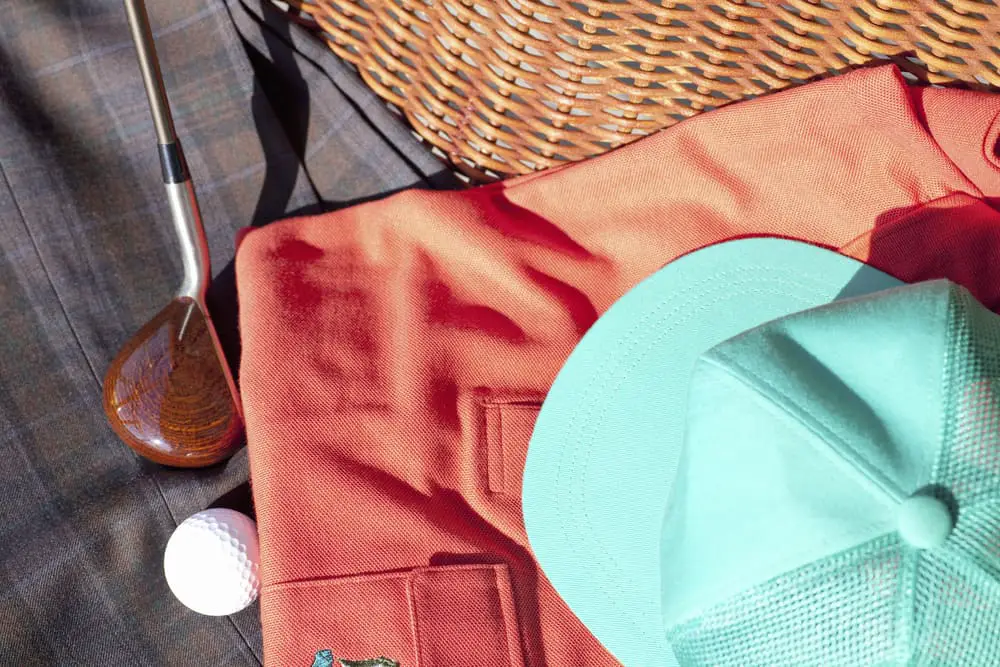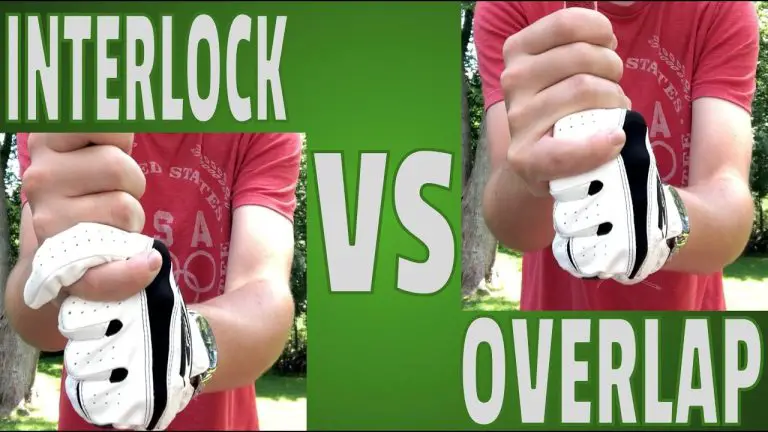Why Are Golf Clothes So Expensive

Golf, often regarded as a game of precision and style, has captured the hearts of enthusiasts worldwide. As you step onto the pristine fairways and prepare to tee off, you’ll notice that golfers are adorned in impeccably tailored and meticulously crafted attire. From the stylish polo shirts to the perfectly tailored pants, golf clothing exudes a sense of sophistication. However, one question that frequently arises is, “Why are golf clothes so expensive?”
In this article, we unravel the reasons behind the seemingly high price tags attached to golf apparel. While the cost of golf clothing may raise eyebrows, it is essential to understand the underlying factors that contribute to its premium pricing. From the utilization of quality materials and expert craftsmanship to the influence of brand reputation and exclusivity, there is a myriad of elements at play.
We will explore the significance of investing in high-quality materials and the advanced technologies incorporated into golf clothing. The association of prestigious brands with the golfing world and limited production quantities will shed light on the allure of certain clothing lines. Additionally, we will delve into the research and development costs, marketing and sponsorship expenses, distribution logistics, and the impact of fashion trends on golf apparel pricing.
By uncovering these facets, we aim to provide a comprehensive understanding of why golf clothes carry a hefty price tag. So, let’s embark on this exploration into the world of golf fashion and discover the factors that contribute to the allure and expense of golf attire.

Quality Materials and Construction
When it comes to golf clothing, quality is paramount. Golfers require garments that not only offer comfort but also enhance their performance on the course. As a result, golf apparel manufacturers invest heavily in sourcing and utilizing top-notch materials. High-quality fabrics, such as breathable and moisture-wicking textiles, are carefully selected to ensure maximum comfort and flexibility during play.
Table 1: Examples of High-Quality Golf Clothing Materials
| Material | Attributes |
|---|---|
| Performance fabric | Moisture-wicking, quick-drying, and UV protection properties |
| Merino wool | Breathable, odor-resistant, and regulates body temperature |
| Technical blends | Stretchability, lightweight, and freedom of movement |
| Microfiber | Soft touch, durability, and resistance to wrinkles and stains |
Moreover, golf clothing undergoes meticulous construction to meet the specific demands of the sport. Expert craftsmanship and attention to detail are crucial in ensuring the longevity and functionality of golf apparel. Reinforced stitching, ergonomic designs, and seamless integration of zippers and buttons are just a few examples of the extra care taken during manufacturing.
Brand Reputation and Exclusivity
The world of golf carries a sense of prestige and exclusivity, and golf clothing brands capitalize on this image. Established brands with a long-standing reputation in the golf industry often command higher prices. Golfers are drawn to these brands not only for the quality of their products but also for the association with a certain lifestyle and status.
Pattern Breaker: Practical Tip When considering purchasing golf clothes, look for well-known brands that have a reputation for quality and durability. While they may be pricier, you can be confident in the value you’ll receive.
Furthermore, some golf clothing lines are intentionally produced in limited quantities to create a sense of exclusivity. By restricting supply, these brands increase the perceived value of their products. Limited editions and collaborations with professional golfers or celebrities further contribute to the allure of these clothing lines.
Research and Development Costs
Innovation and continuous improvement are essential in the competitive golf clothing market. To stay ahead of the game, manufacturers invest substantial resources in research and development (R&D). These costs encompass everything from conceptualizing new designs to testing and refining prototypes.
The integration of cutting-edge technologies into golf apparel is another area where R&D investments are made. For instance, moisture-wicking fabrics with advanced cooling properties and UV protection are the result of extensive research and testing. Such innovations come at a price, which is reflected in the higher cost of these specialized garments.
Pattern Breaker: Actionable Example If you’re interested in the latest golf clothing technologies, explore brands that prioritize R&D and offer innovative features. It’s worth considering investing in these advancements to enhance your comfort and performance on the course.
Marketing and Sponsorship Expenses
Promoting golf clothing brands involves substantial marketing expenses. From extensive advertising campaigns to sponsorship of professional golf tournaments and players, the costs quickly add up. The aim is to create brand awareness and establish a strong presence in the golfing community.
Brands often enter into endorsement deals with renowned golfers, who become ambassadors for their clothing lines. These partnerships not only help promote the brand but also contribute to the perceived value and desirability of the products. However, the expenses associated with such collaborations are factored into the pricing of the golf clothes.
Pattern Breaker: Practical Tip Consider supporting brands that align with your favorite professional golfers or sponsor tournaments you admire. This way, you not only get quality apparel but also contribute to the growth of the sport.
Distribution and Retail Markup
The journey of golf clothing from manufacturing to the hands of consumers involves multiple stages, each with its associated costs. Manufacturers need to consider expenses related to production, distribution, and logistics. These costs include sourcing materials, operating manufacturing facilities, transporting goods, and storing inventory.
As golf clothing reaches retail stores and pro shops, additional costs are incurred. Retail markups are necessary to cover overhead expenses such as rent, utilities, staffing, and marketing efforts at brick-and-mortar establishments. These costs ultimately affect the final price that consumers pay for golf apparel.
Pattern Breaker: Practical Tip Consider exploring online retailers and direct-to-consumer brands, as they may offer competitive prices due to reduced overhead costs compared to traditional retail stores.
Limited Market Competition
The golf clothing market, although highly specialized, may have fewer competitors compared to more mainstream apparel sectors. With a niche target audience, manufacturers may face challenges in achieving economies of scale in production. The smaller customer base and specific demands of golf apparel contribute to higher costs.
Moreover, boutique and niche brands catering to the golfing community often operate on a smaller scale. While they may offer unique and high-quality products, the limited production quantities and specialized focus may result in higher prices. However, some golfers are willing to pay a premium for these exclusive offerings.
Pattern Breaker: Actionable Example While established brands dominate the golf clothing market, don’t overlook smaller, niche brands. They may offer distinctive styles and craftsmanship that set them apart from the competition.
Golf Fashion Trends and Demand
Golf clothing has evolved beyond functionality and now incorporates fashion-forward designs and trends. Golfers, especially younger generations, seek attire that not only performs well but also reflects their personal style. As a result, brands invest in designing garments that are not only technically advanced but also aesthetically pleasing.
The demand for stylish and fashionable golf apparel has risen significantly, driving brands to create clothing lines that seamlessly blend performance and style. From vibrant colors and patterns to tailored fits, golf clothing now offers a wide range of options to suit individual preferences.
Pattern Breaker: Practical Tip If you’re looking to add a touch of personal style to your golf wardrobe, explore brands that embrace the latest fashion trends while maintaining high-quality performance features.
Athlete Endorsements and Performance Expectations
In the world of golf, success and performance are closely tied to image and brand association. Premium golf clothing brands often collaborate with professional golfers to create signature collections or endorse specific products. These partnerships not only provide exposure for the brand but also drive up prices due to the association with the golfers’ achievements and reputation.
Additionally, golf clothing manufacturers develop garments with specific performance-enhancing features. Specialized fits, technical fabrics, and ergonomic designs are engineered to optimize golfers’ movements, providing them with a competitive edge. The research and development involved in creating these performance-focused garments contribute to their higher costs.
Pattern Breaker: Actionable Example Consider researching golf clothing lines endorsed by professional golfers whose playing style aligns with yours. Their input and expertise can help you make informed decisions about your golf apparel.
Cost of Licensing and Trademarks
Golf clothing brands often display official logos and trademarks associated with the sport. However, obtaining the rights to use these logos involves licensing fees and legal agreements. These costs, along with brand partnerships and collaborations, are factored into the overall pricing of golf clothes.
Maintaining brand identity and protecting intellectual property are essential aspects of the golf clothing industry. Brands invest in maintaining the exclusivity and integrity of their trademarks, which contributes to the overall cost of their products.
Conclusion
In conclusion, the high prices of golf clothes can be attributed to various factors. From the use of quality materials and meticulous construction to brand reputation and exclusivity, manufacturers strive to provide golfers with exceptional products that meet the demands of the sport. Research and development costs, marketing and sponsorship expenses, as well as distribution and retail markups, further contribute to the pricing dynamics. Understanding these factors allows golfers to make informed decisions when investing in their golf apparel, balancing quality, style, and value for money.
As the golf clothing market continues to evolve, trends in fashion and performance expectations shape the industry, driving demand and influencing prices. The endorsement of professional golfers, collaboration with athletes, and integration of innovative technologies add to the overall costs. By considering the intricacies of the golf clothing market, golfers can navigate their choices wisely, finding the perfect blend of style, functionality, and affordability.




